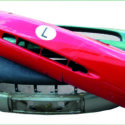
Fully emptied fuel tanks may contain an explosive oxygen fuel mixture and should be handled with care. Hubcaps, rear lights and indicators as well as most of the bumpers are made out of clearly defined material and, if collected appropriately, can by recycled. Front lights and mirrors are made out of a material mixture, which is difficult to separate.
Small damages on bumpers can be repaired avoiding the replacement of the entire part. Ask resellers for existing repair systems.
Rear lights and indicators as well as bumpers of known composition (PP, PC and PU) are separated according to material types, shredded, granulated and then used in the production of new parts. Front lights, mirrors, bumpers of plastic mixtures and fuel tanks undergo thermal treatment.
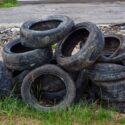
The basic raw material to produce rubber is natural rubber, providing from latex, the secretion of the tropical rubber tree. In addition to natural rubber, synthetic rubber types are available with similar characteristics.
Ask your reseller about recycled tires, this saves money and raw material. Regularly check tire pressure, it saves materials and reduce fuel consumption.
To be recycled, rubber products and tires are shredded and materials are separated by metal separators and wind sieving. Metal goes to the old metal recycling, rubber granulate is used as fuel material in the production of floor tiles and cement.
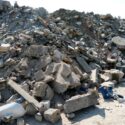
Mineral construction material is inert, i.e. it has no impact on the environment and can be deposited on disposal sites. A better solution however is to use this waste for the production of new construction material, for instance in the road construction, etc. Mineral fibers do not belong into the construction waste but are collected separately and recycled. Gypsum waste should be collected separately.
The condition for recycling and deposition on disposal site is that the material is not contaminated with dangerous substances as for instance paint, oils or coatings and does not contain third substances as plastic or wood.
Mineral construction material is recycled by shredding and sieving the material. This process allows removing third substances as paper, metal (as nails). It can then be used again for instance in the road construction.
Contern SA takes back old concrete parts for reuse in the production of new products. This is also certified with SDK’s resources potential.
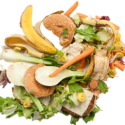
In general, only organic waste of plant origin can be composted or can be put in the green bin. Organic waste of animal origin are considered separately. It is essential to ensure that no hazardous material is introduced to humans through the food chain.
Composting is the oldest and most natural form of waste recycling. The end product, compost, is a natural manure and an excellent soil improving means to be used in the garden and on fields. Be aware of your responsibilities with food in order to have as little waste as possible.
Organic waste from plant: Products from organic plant are generally compostable.In some biogas central, leftovers can be converted into biogas.
Animal origins: animal fatty substances can be reworked in industrial greases, animal carcasses and similar products are treated in thermal systems.
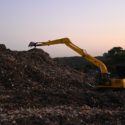
There are currently two installations in Luxembourg for the disposal of waste from residential areas. Two disposal sites (SIGRE, Buchholtz-Muertendall close to Flaxweiler and SIGRE, Fridhaff-Erpeldange close to Diekirch) as well as an incineration site (SIDOR close to Leudelange).
Collect used valuable material and waste to be composted separately and not in the ton for remaining waste. This helps to reduce the quantity of such waste and can help you save money. Dangerous substances to not belong to the remaining waste as this can create problems on the disposal site and in the incinerator.
Waste from residential areas is burnt in a domestic waste incinerator or disposited on controlled disposal sites.
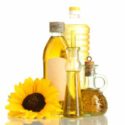
New technologies allow to process vegetal greases to produce high quality bio-diesel which can be used in diesel vehicles or bio-heating centrals.
Approximately 94 % of the collected kitchen fat and oil by the SDK are used for the production of biodiesel, another part is used directly to heat the SDK center in Colmar-Berg. Only a small part is used for energetic valorisation due to contamination.
All trucks and vans and even part of the cars from the SDK continue to use biodiesel. In 2014 the heating installations were centralized on the site and switched to direct operation with used kitchen fat and oils.
In order to optimize the use of used fats and oils in an ecological and economical way for the purpose of the circular economy, the German REDcert certification system is applied since 2014. The system is certifying a sustainable use of biomass in compliance with the German biomass sustainability provision, which was recognized by the EU Commission at the European level. Within this frame, all product flows are precisely documented and processed separately as to their origin (separation by plant / animal origin – cf also www.redcert.org).
Kitchen oils and greases should never be dumped into the sewers as they can be clogged and can impact the functioning of water treatment plants. Avoid unnecessary quantities of water, frying and roasting remainders in greases and oil as these substances can prevent recycling.
Kitchen oils and greases are directly used for central heating or processed in a processing plant to become bio-diesel (methyl ester of fat acid FME). Contaminated greases and oils have to undergo heat treatment in appropriate installations.
SDK works together with the following processing plants:
– Münzer Bioindustrie
– BFS GmbH
– Biowerk Sohland
IMPORTANT! Not in the household waste! Special collection containers for kitchen oils and fats are available free of charge at the resources center or at SDK.













